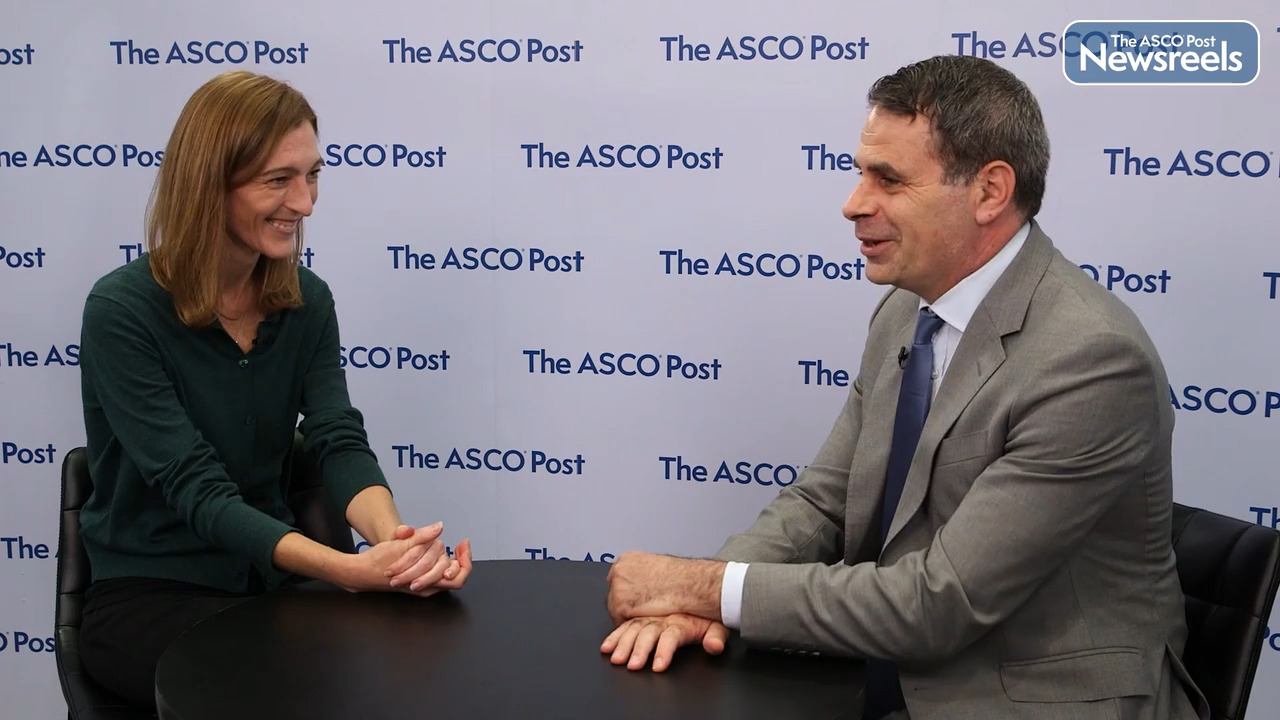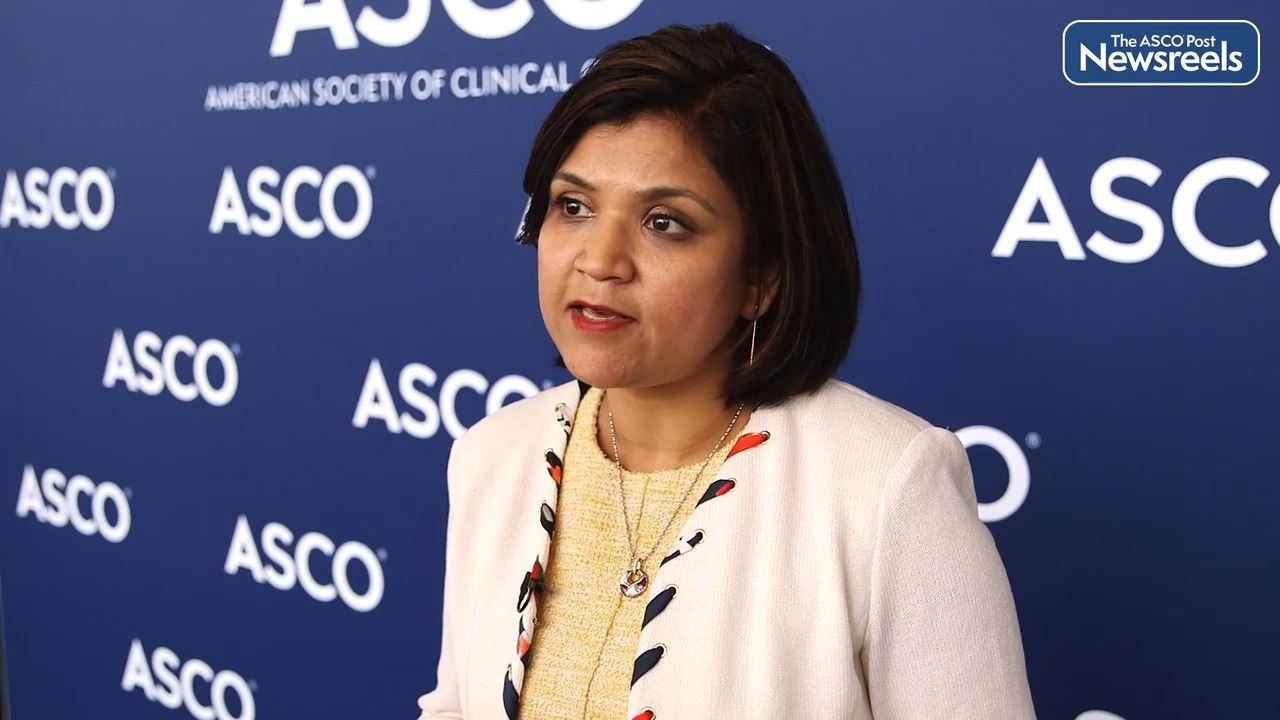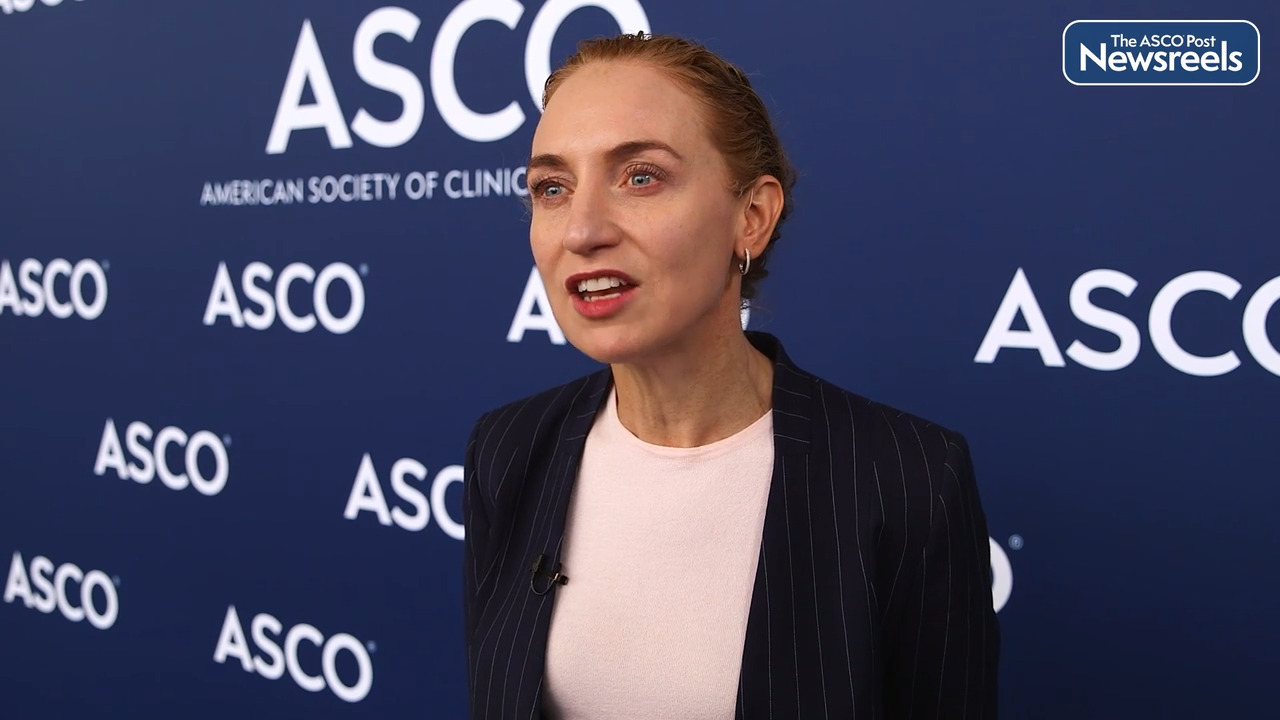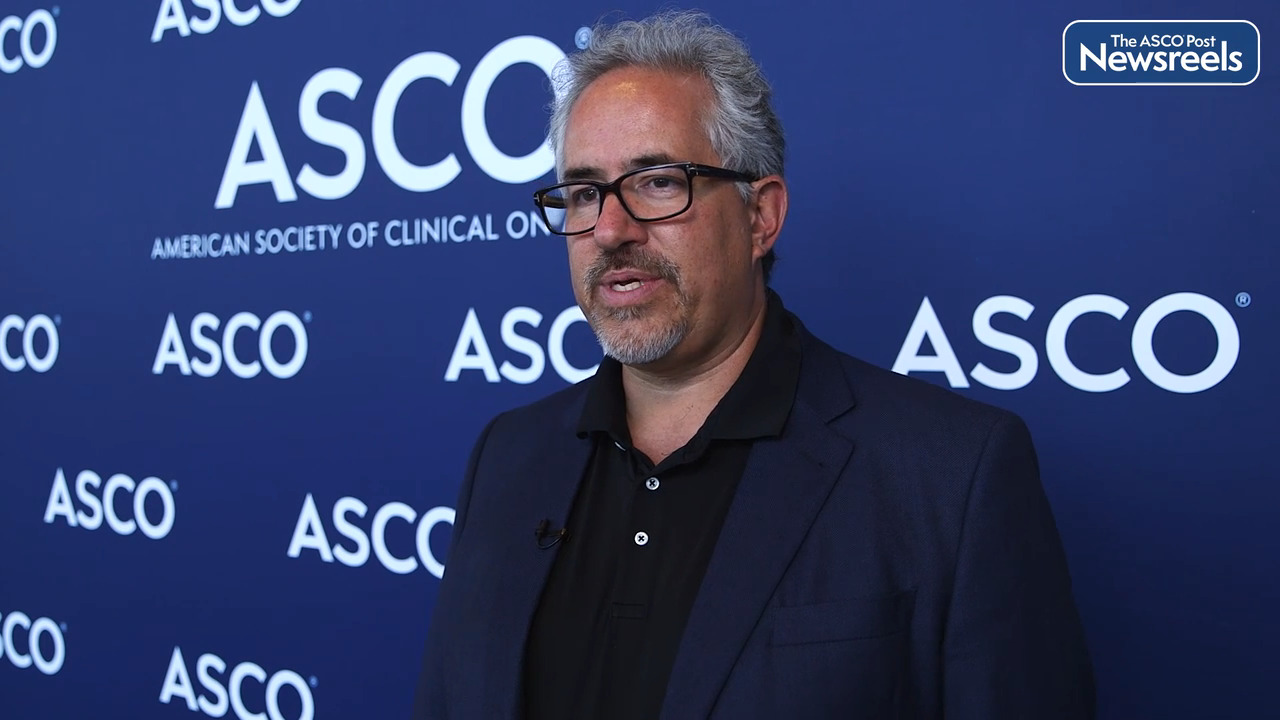Transcript
Disclaimer: This video transcript has not been proofread or edited and may contain errors.
ATHENA-MONO was a randomized Phase 3 trial looking at rucaparib versus placebo in frontline maintenance after responding to platinum-based therapy. Now you may say, "We already use that." There was another study, which I'm very proud of, called PRIMA that I was the last author on. That study is very helpful and gained FDA approval as you know in April 2020, but this adds confidence to that. In fact, the ASCO guidelines say that all patients with newly diagnosed advanced ovarian cancer who respond to a platinum-based therapy should be considered for a PARP inhibitor. So hopefully if you're not doing it, you'll begin, that ATHENA-MONO will add confidence to it.
Now, the medication that we studied was rucaparib. Rucaparib is a PARP inhibitor. It has four doses, 600, 500, 400, 300. The primary endpoint was in patients who had a molecular signature consistent with homologous recombination according to the FoundationOne CDx. When we randomized patients, and they're randomized 4:1, 528 patients in 24 countries in more than 200 sites, we reached our primary endpoint.
Think of this. The hazard ratio versus placebo in the rucaparib patients, according to the HRD biomarker, which is about half of the patients based on the investigator, was 28.7 months. Think of that. Newly diagnosed advanced ovarian cancer, stage three and four that respond to platinum-based therapy now can live more than two years versus placebo where they live less than a year, 11.3 months. Based on a step-down analysis, we pivoted to an intent-to-treat analysis and it was still double: placebo, 9.2 months, the rucaparib arm, 20.2 months, hazard ratio of 0.52. Even in the biomarker negative subgroup there was still a statistically significant and clinically relevant impact in progression-free survival. Now that comes with a cost. About half of the patients required a dose reduction after an interruption, but the quality of life was maintained, and because of the dosing flexibility, again, 600, 500, 400, 300 twice daily, more than 70% of the patients could be maintained on 80% of the dose, which was 500 or 600.
What's next? Next is ATHENA-COMBO. So in this ATHENA-MONO arm, the rucaparib was the experimental arm, but in ATHENA-COMBO, which is a fully powered independent but related study, now the rucaparib is the control arm. The experimental arm now randomized 1:1, 400 patients in each arm, will be rucaparib/nivolumab. You recall that JAVELIN 100 was negative adding avelumab to frontline chemotherapy. You'll recall that IMAGINE 50 was negative adding atezolizumab to bevacizumab, but now this is maintenance in PARP plus IO.
So stay tuned. We hope to have the results to ATHENA-COMBO potentially next year against its event-driven analysis. It's my pleasure to share these data with you that were also published simultaneously in the Journal of Clinical Oncology on June 6, 2022.





